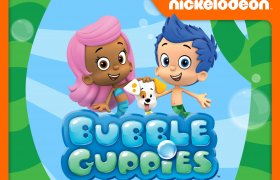Teaching your Kids to be Bilingual: Tips and Tricks

America is the only country that children grow up and the majority of them are not bilingual. Children in other countries learn their own language and learn English as a second language in many countries as soon as they start attending school. Some American public schools are bilingual but not many. Children are required to take 2 years of another language in high school and not many choices are offered. Some children are very smart and take 6 years of a foreign language in middle school and continue on to high school. If you are lucky enough to have a school district that offers a bilingual curriculum then you have picked a great area to live. If the only chance your child has to learn another language in high school, then try and talk to your child and tell them the importance of being able to be bilingual and tell them how this may benefit them in the future and in their adult life. Here are some tips and tricks for teaching your kids how to be bilingual.
The best time is to start young because two and three-year-olds are increasing their vocabulary and learning speech patterns they have been hearing since they were born. The earlier, the better your child will be able to understand a second language and pick up on the words. Each language has different sounds so children are able to recognize the unique differences because they don’t have the everyday stressors parents have on their minds. Children are able to distinguish phonetics before they turn 3 because this is when their pronunciations are the sharpest. People lose the ability to hear and create those sounds if they don’t learn them from early on. Even if your child just hears a few words in another language at a young age, this will allow the child the tools for understanding the language and learning to speak it later on in life.
Children will learn a language best if people are speaking the language fluently and openly. If a child is able to listen to small talk, they will begin to pick up the sounds and accent easily. Parents can choose a language that is common in their neighborhood, on a learning show your child may watch often, sometimes there are classes for preschoolers or hire a bilingual babysitter and ask her to speak her native tongue constantly. Two and three years old love to repeat what they hear and soon enough they will start to understand the simple meanings of small words and phrases.
It’s also easier for them to learn one word at a time if you decide not to take them to class and teach them yourself. Whatever language you choose you can say each new word has many different names in different languages, but we will work in Spanish. You can say “water” means “agua” in Spanish. You can always make picture flash cards as well.
Be patient, your child won’t learn to speak another language from hearing the words, videos or singing a few songs. They have to be around the language where it is spoken fluently and constantly for your little one to pick up words and understand. Exposure is the best way for your child to help them understand certain words and phrases when they hear them. Parents probably won’t be speaking fluent German with their child but using a simple word here and there will help them understand English and whatever your language you are teaching them. If you say “Ciao” in French, your child knows it means goodbye in English. Simple words, simple phrases.
There is only one way a young child can learn a second language and that is if they are around a person who speaks the language fluently and constantly. If you live in a bilingual home here are some tips to remember. Have one adult speak the full version of the second language so your child doesn’t get fragments of the second language. Children will mix up words from both languages in the same sentence frequently, but they will soon understand which word belongs to which language.
Don’t listen to other people because even though your child is speaking two languages and may know more Spanish than English, their total word content will add up to be more than children their age so don’t fret. Learning two languages does not cause speech delays.
 If you decide to buy bilingual toys, games videos or CD’s, listen to them first to make sure the words are clear and concise and spoken by a professional who is using the proper accents.
If you decide to buy bilingual toys, games videos or CD’s, listen to them first to make sure the words are clear and concise and spoken by a professional who is using the proper accents.
It’s never too late for children to start learning another language because many college students started learning a second language in middle school and have been able to speak the language fluently by Junior year in high school. They have been the ones to decide to go on to college and continue taking the language further. Set realistic goals but never compare your bilingual child to children who only speak one language. Be consistent with this language and if it’s not working for your family, you can always switch the way your child is learning around to something different.
Don’t be afraid to tell your child the correct way to say a word if they mispronounce it or use it in the wrong context. Don’t overdo things and stop your child constantly in the middle of a sentence or they will become confused. Take as much time as you can viewing videos and helping your child learn more about the culture of the language they are learning. You have to be active as a parent when helping your child learn a new language because they will tire easily of books and videos if you aren’t there to help.
Try and read to your child every day a book that has the language you want them to learn and continue to keep reading to them once they learn how to read because this is a good way to teach comprehension. Buy different materials to help them learn new skills with the language you chose and don’t be afraid to ask bilingual parents for help.
It’s always fun to take your child on a trip to a foreign country where they are studying the language because they will meet the people of the country and be able to converse. It’s always exciting to teach kids about different parts of the world when you travel and show them that the currency is even different.
It’s great to make learning a new language as fun as you possibly can and if your child is becoming tired or stressed out, they might shut down to give them the breaks that they need. If your child isn’t interested at this time with learning another language, don’t be so hard on yourself. You can wait for a few months and try again. Every child will find the niche they are comfortable with in life.







